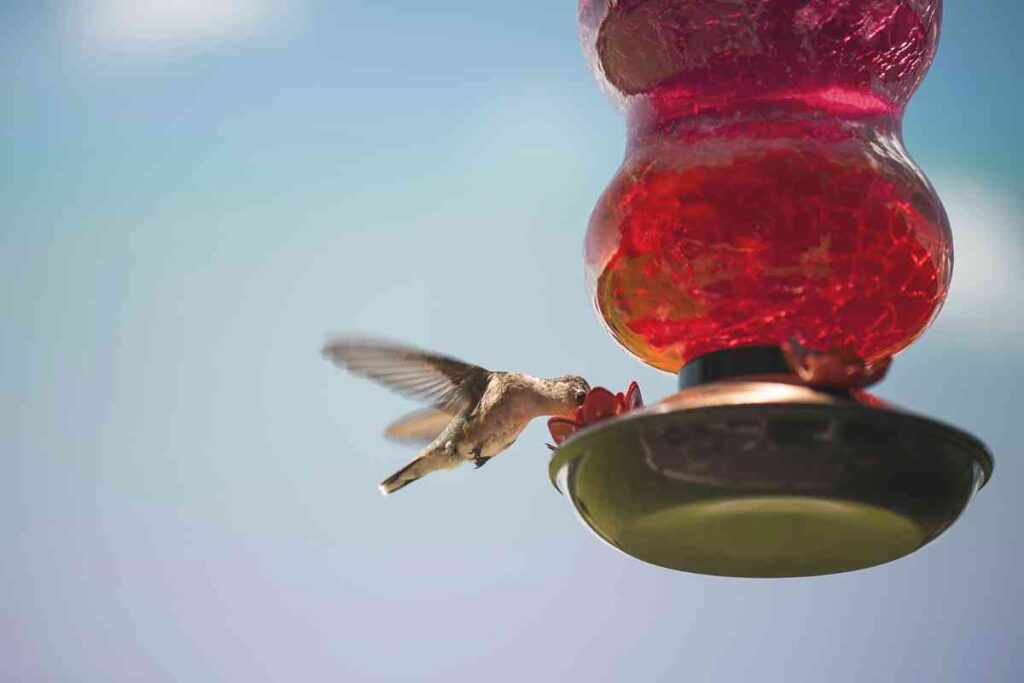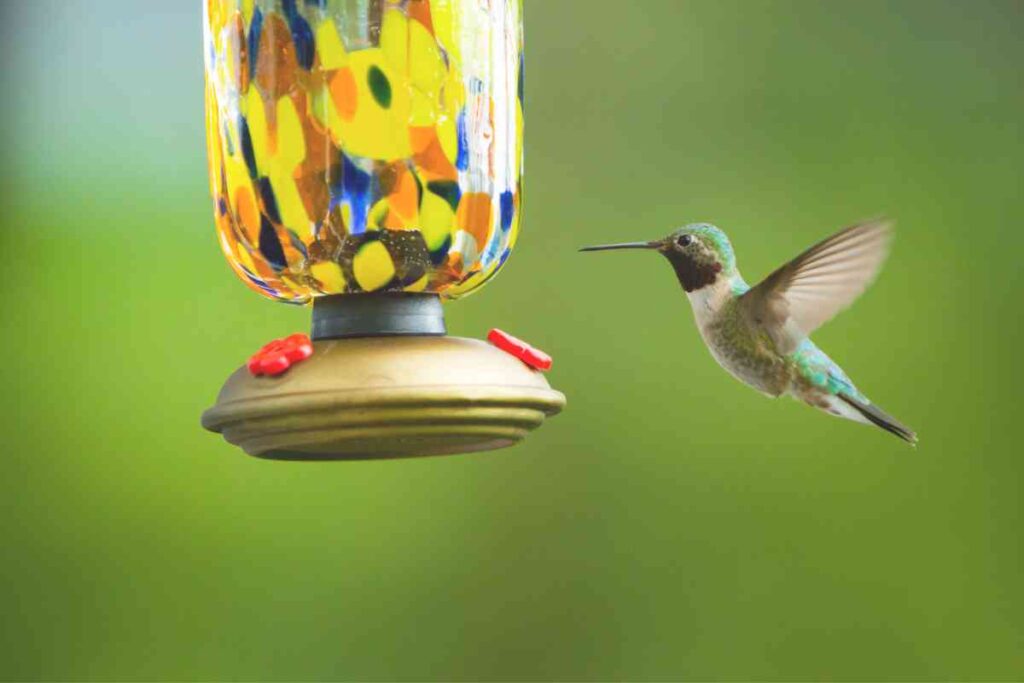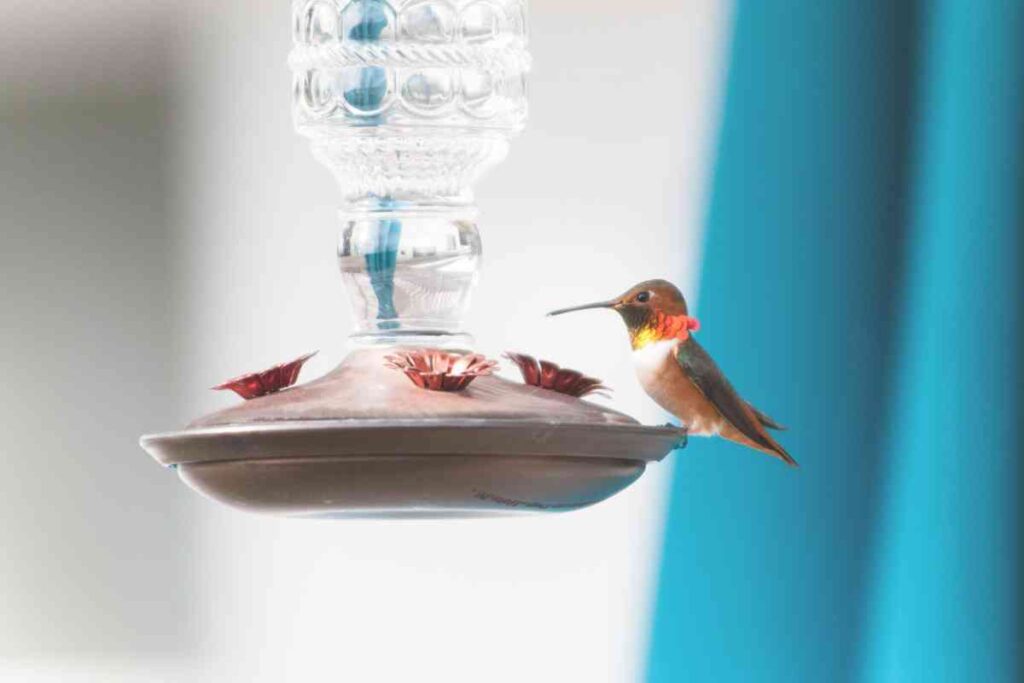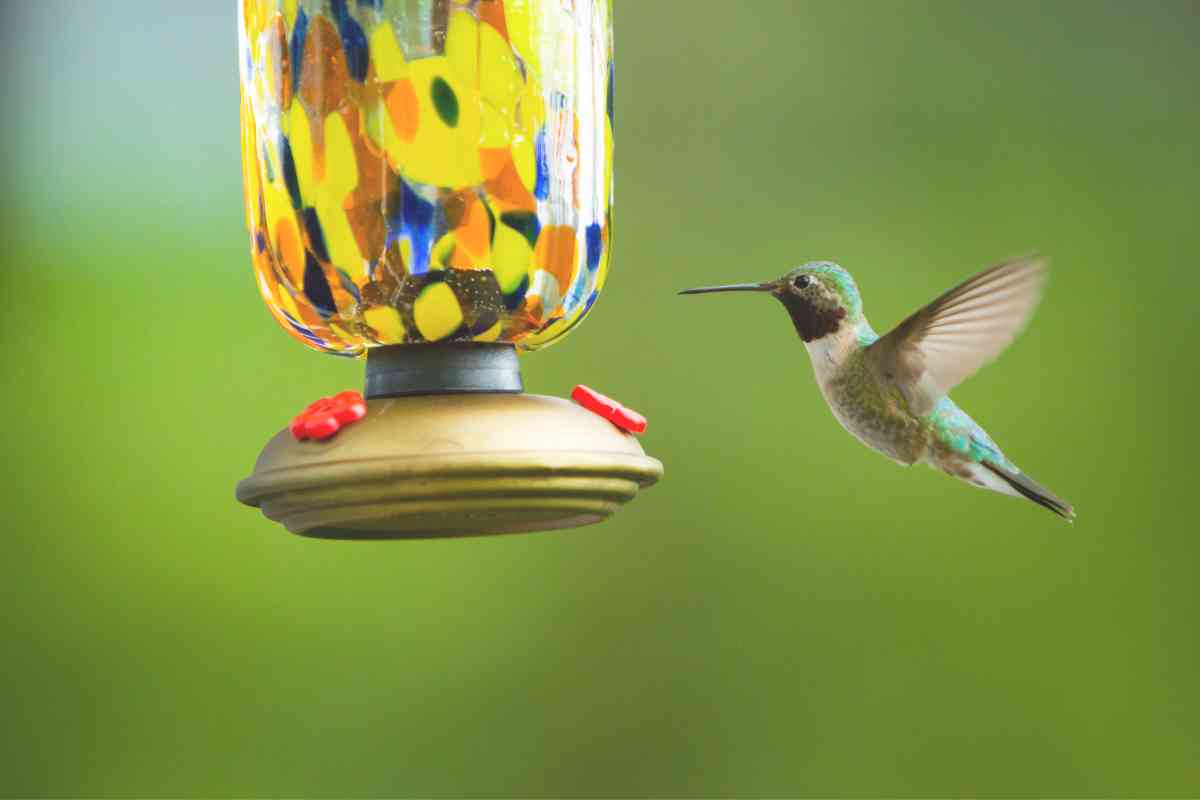Table of Contents
Why Set Up a Humming bird Feeder?

Hummingbirds are one of nature’s most dazzling creatures, known for their vibrant colors and remarkable ability to hover in mid-air. By setting up humming bird feeders in your backyard, you invite these little beauties to your garden, bringing life and color to your outdoor space. Whether you’re looking for the best humming bird feeders or trying to find out how to attract humming birds to a feeder, this guide covers all you need to know. Let’s dive into the essentials!
1. Choosing the Best Hummingbird Feeders
Finding the best humming bird feeders is the first step toward creating a hummingbird-friendly environment. The ideal feeder should be easy to clean, designed to hold just enough nectar, and ideally have a perch to allow hummingbirds to rest while they feed. Below are a few highly-rated options:
- Perky-Pet Pinch-Waist Glass Hummingbird Feeder – A classic, easy-to-clean humming bird feeder with a wide-mouth reservoir.
- First Nature 3055 Hummingbird Feeder – Known for its easy-to-fill base and bright color that attracts hummingbirds.
- Aspects HummZinger HighView Feeder – Popular for its durability and ease of cleaning, with a solid perch for resting.
When selecting feeders, consider opting for an easy-to-clean hummingbird feeder to make maintenance less of a hassle. Glass or metal feeders generally last longer and don’t retain the flavors that could spoil quickly in plastic models.
2. Where to Place a Hummingbird Feeder
Location is critical for attracting birds to your feeder. Place your feeders in areas with plenty of visibility for both you and the hummingbirds, ideally somewhere that catches the sun during early morning or late afternoon.
Tips for Placement
- Hang feeders in shady areas, as direct sunlight can cause nectar to spoil faster.
- Position feeders away from heavy human activity but close enough to watch them.
- Avoid windy spots, as strong gusts can spill nectar and disturb birds.
Suggested Product: Window-Mounted Hummingbird Feeder
This feeder attaches directly to windows for up-close viewing, letting you watch the birds up close without disrupting them.
3. How to Attract Hummingbirds to Your Feeder

To attract birds to a feeder, especially hummingbirds, it’s important to cater to their unique preferences.
- Use Red Feeders: Hummingbirds are attracted to the color red. Choosing a red feeder or adding red accents can increase your chances of visits.
- Fill Feeders with Homemade Nectar: Make a simple sugar-water mixture (1 part sugar to 4 parts water) to simulate the nectar found in flowers. Avoid food coloring, as it can be harmful to birds.
Consistent maintenance is essential, so regularly clean and refill your feeder to keep the nectar fresh and safe for the hummingbirds.
4. How Often to Change Humming bird Feeder Solution
The nectar in hummingbird feeders should be replaced frequently to prevent fermentation, especially in warmer weather.
- Change every 2-3 days in hot climates and every 4-5 days in cooler conditions.
- Rinse feeders thoroughly with warm water, avoiding soap residue, as it can deter hummingbirds.
Product Suggestion: Glass Hummingbird Feeder with Ant Moat
A feeder equipped with an ant moat helps keep insects out of the nectar, reducing the need for constant cleaning.
5. Maintenance Tips for Easy-to-Clean Feeders
Choosing an easy-to-clean hummingbird feeder will make a big difference in upkeep. Look for wide-mouth feeders or feeders that can be fully disassembled for easy access to all parts.
Cleaning Tips
- Use a bottle brush to reach all areas, or purchase feeders with removable bases.
- Clean thoroughly at least once a week, more often in high temperatures.
6. Choosing a Pretty Hummingbird Feeder

A pretty hummingbird feeder isn’t just decorative; it can also be functional. Look for feeders with eye-catching designs that still provide utility for easy cleaning and refilling.
Recommended Product: Vintage Floral Glass Hummingbird Feeder
This beautiful vintage-style feeder is designed to attract hummingbirds with its flower-like feeding ports and vibrant colors.
7. Setting Up a Hummingbird House
Although hummingbird houses are not commonly used as actual nesting sites, setting up a birdhouse or even hanging nearby branches and shrubs can help provide a safe environment. Ensure the area is calm, shady, and sheltered from harsh weather.
8. Setting Up Your Hummingbird Oasis
By choosing the best hummingbird feeders, placing them strategically, and keeping them well-maintained, you’ll enjoy the company of these mesmerizing birds throughout the season. With the right setup and regular upkeep, your backyard can become a haven for hummingbirds, rewarding you with beautiful sights and sounds.

